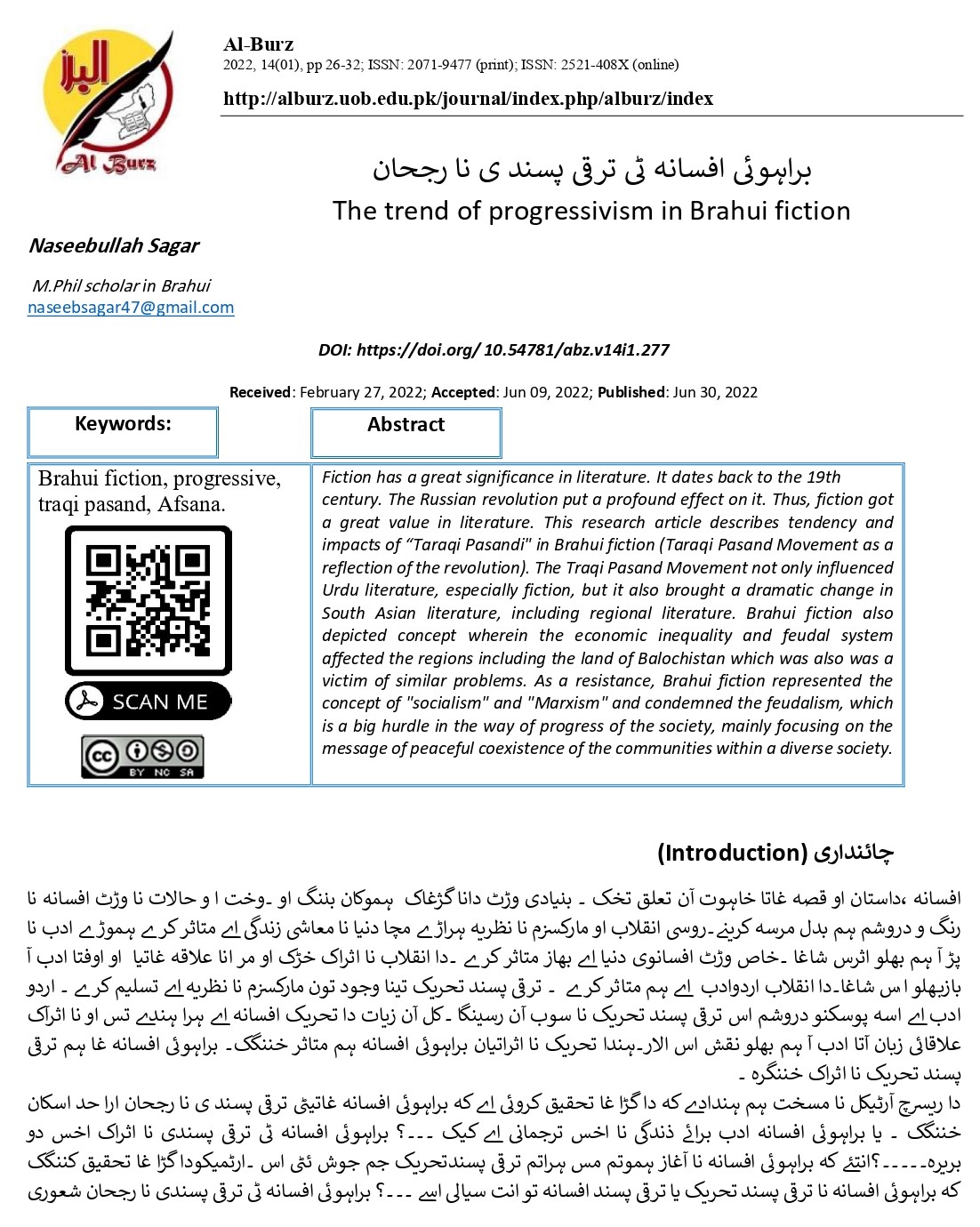براہوئی افسانہ ٹی ترقی پسند ی نا رجحان
The trend of progressivism in Brahui fiction
DOI:
https://doi.org/10.54781/abz.v14i1.277Keywords:
Brahui fiction, progressive, traqi pasand, AfsanaAbstract
Fiction has a great significance in literature. It dates back to the 19th century. The Russian revolution put a profound effect on it. Thus, fiction got a great value in literature. This research article describes the tendency and impacts of “Taraqi Pasandi" in Brahui fiction (Taraqi Pasand Movement as a reflection of the revolution). The Traqi Pasand Movement not only influenced Urdu literature, especially fiction, but it also brought a dramatic change in South Asian literature, including regional literature. Brahui fiction also depicted the concept wherein the economic inequality and feudal system affected the regions including the land of Balochistan which was also a victim of similar problems. As a resistance, Brahui fiction represented the concept of "socialism" and "Marxism" and condemned feudalism, which is a big hurdle in the way of the progress of the society, mainly focusing on the message of peaceful coexistence of the communities within a diverse society.
References
Akhtar, S. (1991). Afsana aur Afsana nigar. Lahore, Pakistan: sang-e- mel publisher.
Asar, M. (2008). Awliko nan. Quetta, Pakistan: Brahui Academy.
Azeem, W. (1960). Dastan se Afsany tak. Karachi, Pakistan: Urdu Academy Sindh.
Fayyaz, A. (2017). Barrim. Mastung, pakistan: Aamach adabi dewan.
GUl, K. (2008). Brahui adab ma afsany ka irteqa. Quetta, Pakistan: Brahui adabi society.
Hayyat, G. (2011). Cheeda. Quetta, Pakistan: merder institute of research and publication.

Downloads
Published
How to Cite
Issue
Section
License
Copyright (c) 2022 Al-Burz

This work is licensed under a Creative Commons Attribution-NonCommercial-ShareAlike 4.0 International License.
Alburz has licensed under a CC Attribution-NonCommercial-ShareAlike 4.0



